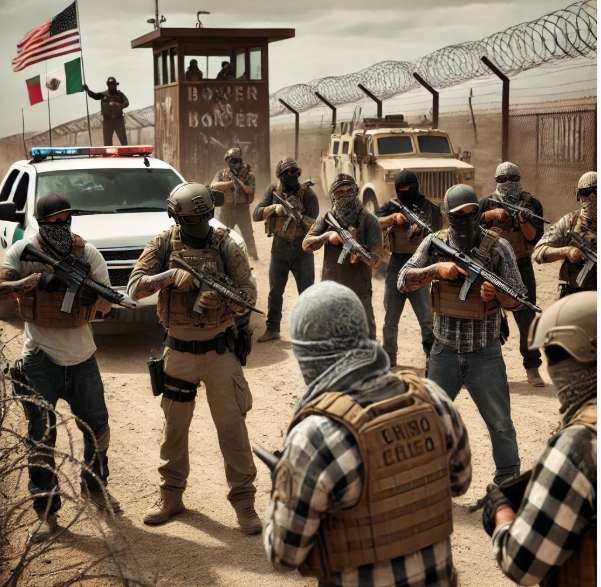US Announces Decisive Action Against Mexican Drug Cartels.
The Conservative Political Action Conference (CPAC), a prominent gathering of conservative politicians, media figures, and activists, recently convened near Washington, D.C., serving as a platform for fervent supporters of former President Donald Trump to laud his administration’s accomplishments, particularly during its initial month. The conference underscored the numerous executive orders enacted by Trump, which significantly reshaped government policies and international relations, igniting both praise and controversy. Key discussions revolved around national security, the ongoing conflict in Ukraine, and the administration’s stance against Mexican drug cartels. The event also highlighted the growing divide between conservative voices and mainstream media, with accusations of misinformation and manipulation dominating the narrative.
Mike Waltz, a prominent figure within the Trump administration’s national security apparatus, addressed the conference, focusing on U.S. involvement in the Ukrainian conflict. He outlined a strategy that included American investment in Ukraine’s mineral resources, a move intended to offset the financial burden of providing defense aid. This proposal, however, encountered initial resistance from Ukrainian President Volodymyr Zelenskyy, who rejected a deal granting U.S. companies 50% ownership of Ukraine’s rare earth minerals. Waltz later announced a breakthrough, claiming Zelenskyy’s agreement to a revised version of the deal, one that incorporated security guarantees for a sovereign Ukraine. This development, if confirmed, represents a significant shift in the dynamics of U.S.-Ukraine relations and raises questions about the long-term implications of such economic partnerships.
Beyond Ukraine, Waltz emphasized the Trump administration’s aggressive posture against Mexican drug cartels. He highlighted the State Department’s recent designation of several cartels as terrorist organizations, a move with potentially far-reaching consequences. While the specific actions stemming from this designation remain unclear, it signals a hardening stance against cartel activity and raises the prospect of increased military or law enforcement engagement. The designation, however, also raises concerns about potential escalation and the impact on U.S.-Mexico relations.
Kari Lake, a former journalist and rising political figure, took center stage at CPAC, delivering a staunch defense of Trump’s policies and a scathing critique of mainstream media. Trump’s endorsement of Lake for a potential leadership role at Voice of America (VOA), the U.S. government’s international broadcasting service, further underscores her prominence within conservative circles. Lake praised Trump’s efforts to combat corruption and reduce spending, specifically citing the State Department and Elon Musk’s purported Department of Government Efficiency’s initiatives to curtail foreign aid. This focus on fiscal responsibility and government efficiency resonated strongly with the CPAC audience, reflecting a core tenet of conservative ideology.
Lake’s departure from journalism, attributed to her disillusionment with what she perceived as biased coverage of the coronavirus pandemic, added another layer to the conference’s narrative of media distrust. She accused mainstream media outlets of manipulating public opinion rather than informing it, echoing a sentiment prevalent among conservative voices. Furthermore, her dismissal of the 2020 election as fair and secure further amplified the ongoing debate about election integrity, a topic that continues to divide the nation.
Looking ahead to her potential role at VOA, Lake pledged to prioritize truthful reporting, contrasting it with what she characterized as the often-biased narratives prevalent in mainstream media. She acknowledged VOA’s mixed record, suggesting a need for reform and a renewed focus on objective journalism. Her assertion that “We are fighting an information war, and the best weapon is the truth” encapsulates the central theme of her address, highlighting the perceived battle for narrative control in the current political landscape. This framing of information as a weapon underscores the high stakes involved in shaping public perception and the importance of discerning truth from misinformation. Lake’s potential appointment to VOA, therefore, holds significant implications for the future direction of U.S. international broadcasting and its role in shaping global narratives.
Share this content:












Post Comment